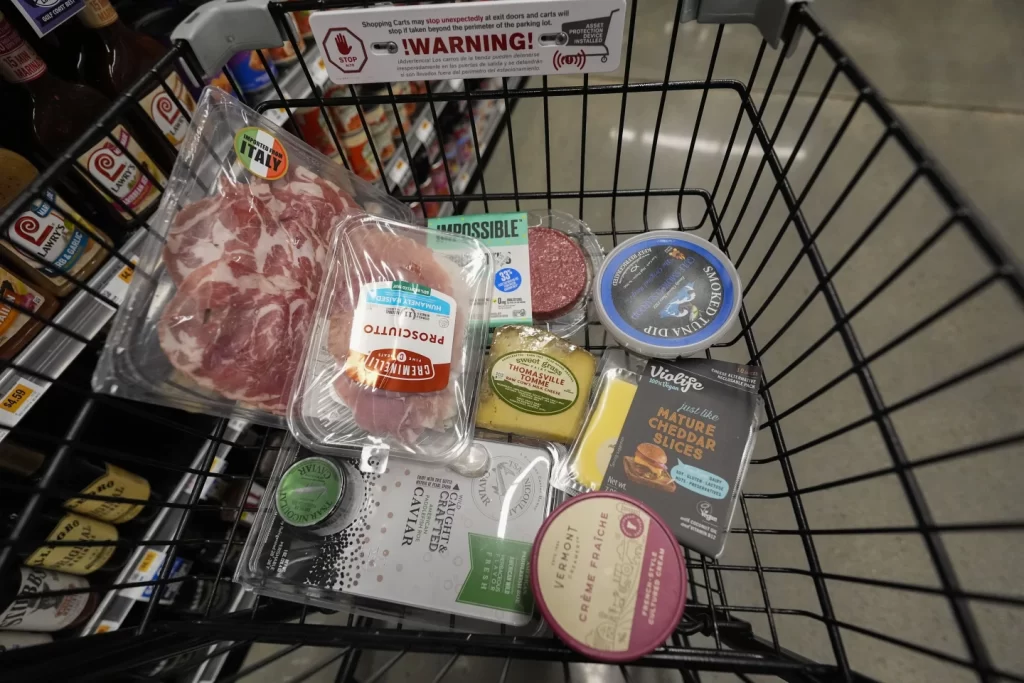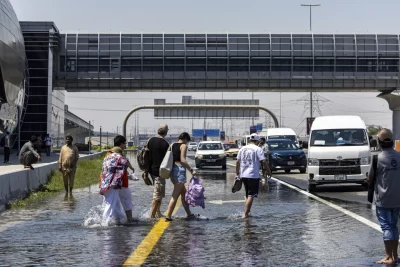
ALBANY, N.Y — Nature wraps bananas and oranges in peels. But in some modern supermarkets, they’re bagged or wrapped in plastic too.
For Judith Enck, that’s the epitome of pointless plastic. The baby food aisle is similarly distressing for her, with its rows and rows of blended fruits, vegetables and meat in single-use pouches that have replaced glass jars.
Less than 10% of plastic is recycled. Most is buried, burned or dumped. Recycling rates for glass, aluminum and cardboard are far higher. And cardboard or paper packaging is biodegradable.
The global theme for Earth Day on Monday is planet vs. plastic. Plastic production continues to ramp up globally and is projected to triple by 2050 if nothing changes. Most of it is made from fossil fuels and chemicals. As the world transitions away from using fossil fuels for electricity and transportation, plastics offer a lifeboat for oil and gas companies as a market that can grow.
The Earth Day environmental movement is calling for “the end of plastics for the sake of human and planetary health.” People are increasingly breathing, eating and drinking tiny particles of plastic, though researchers say more work is necessary to determine its effect on human health. Millions of tons of plastic wind up in the ocean each year.
Plastic is everywhere in modern society. That’s evident whenever you go grocery shopping, said Enck, a former Environmental Protection Agency regional administrator who now heads up the advocacy group Beyond Plastics. There are things shoppers can do if they want to use less plastic.
On a recent trip to the Honest Weight Food Co-op in Albany, Enck bought almond butter and yogurt in glass containers. She asked that her fish be wrapped in paper and not placed in a plastic bag. She steered clear of bagged carrots and breezed past the lettuce packed in what she calls “plastic coffins.”
She keeps reusable shopping bags in her car, a common practice in New York since the state banned plastic carryout bags several years ago.
“Even small steps make a difference because big supermarkets notice when people ask for less packaged material. Also, our kids pay attention. If they’re shopping with us and you talk about why you’re reaching for the glass jar rather than the plastic jar, it’s an opportunity for education,” she said.






